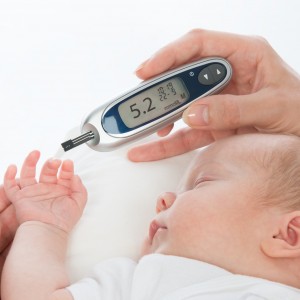 A new study recently published in the journal BMJ Open revealed that children with type 1 diabetes in Wales, especially preschoolers, are at an extremely high risk of hospital admission. The study was conducted by researchers in the United Kingdom at the University of Bristol, Swansea University, Bangor University, the University Hospital of Wales and Cardiff University and is entitled “Evidence for a persistent, major excess in all cause admissions to hospital in children with type-1 diabetes: results from a large Welsh national matched community cohort study.”
A new study recently published in the journal BMJ Open revealed that children with type 1 diabetes in Wales, especially preschoolers, are at an extremely high risk of hospital admission. The study was conducted by researchers in the United Kingdom at the University of Bristol, Swansea University, Bangor University, the University Hospital of Wales and Cardiff University and is entitled “Evidence for a persistent, major excess in all cause admissions to hospital in children with type-1 diabetes: results from a large Welsh national matched community cohort study.”
Type 1 diabetes is found in only around 5% of the individuals diagnosed with diabetes, corresponding to a chronic condition normally diagnosed in children and young adults. Individuals with type 1 diabetes do not produce insulin, a hormone essential to control blood sugar levels and convert sugar, starches and other foods into energy.
Type 1 diabetes has no cure and the number of children diagnosed with the disorder is increasing 3 to 4% every year, especially among school-aged children. A poor management of this medical condition often leads to emergencies and ultimately hospitalization.
The goal of this study was to determine the frequency at which children with type 1 diabetes are admitted to the hospital in comparison with healthy children of the same age, gender and socioeconomic status, living in the same area. Researchers analyzed data covering 95% of all young people with type 1 diabetes in Wales (1,577 children aged between 0 and 15 years) and hospital health records on the entire Welsh population.
Researchers found that children with type 1 diabetes have a 480% higher risk of hospital admission in comparison to healthy matched controls. The admission rates were found to be higher among diabetic children aged 0 to 5 years, and the hospitalization risk was found to decrease by 15.4% for every five years more in the child’s age at the time of the diagnosis. Children of lower socioeconomic status and children receiving outpatient care in a smaller sized medical facility were found to be at higher risk for hospitalization.
“Our research shows that children with diabetes are at an unacceptably increased risk of being admitted to hospital,” concluded the study’s senior author Dr. John Gregory in a news release. “Based on this evidence, clinical services need to look at ways of supporting the care of those most at risk: the very young and those from poorer backgrounds. It is likely that greater anxiety surrounds healthcare issues in those from poorer backgrounds and in very young children who can become ill more rapidly than older children. These are potentially modifiable factors depending on the availability of expert help to support children and their families.”
Regarding outpatient care in smaller medical centers, Dr. Gregory advised “Given the increased risk of admission of patients cared for in smaller outpatient clinics, we also need to examine working practices, especially ‘out-of-hours’ services, to see if there are better ways to deliver care in a way that avoids the need for admission to hospital.”
Regarding this study, the renowned Pediatric Endocrinologist and Diabetologist at the University of Ulm in Germany, Dr. Reinhard Holl said “This is an extremely important study both from the perspective of patients and their families, and from a healthcare perspective. (…) This study demonstrates that we are still far from our goal of providing treatment that interferes as little as possible with the lives of children and their families. Hospitalization keeps children out of school and away from their families and friends — this should be avoided by all means if possible. In addition, costs to the health care system are high, money which should be invested to improve continuous outpatient management and family support for those affected.”


